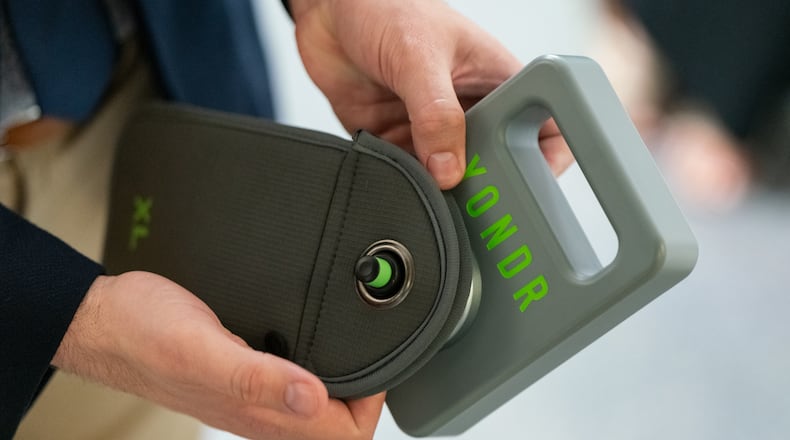An urgent appeal to us parents: Please immediately eliminate all smartphone and social media use from our children’s lives.
I repeat: Eliminate all smartphone and social media use from our children’s lives.
I can hear the exceptions and excuses we might have: Why would anyone do that? Impossible anyway. The train has left the station. Phones have lots of benefits, too. What if I need to reach my kiddo?
Credit: Contributed
Credit: Contributed
I’m convinced smartphones drastically worsen parenting outcomes for almost all children. This is most obvious for the tragic results that are easily quantified. Jonathan Haidt’s fantastic book, “The Anxious Generation,” outlines them.
Since the introduction of the iPhone in 2007:
• Anxiety and depression for children doubled.
• Self-harm among girls increased.
• The suicide rate for boys doubled.
• Meeting up with friends has been cut in half.
• Daily time with friends fell to a third of its 2007 levels.
However terrible, these results are not the worst of it. I sincerely feel the greatest harm we are facing from smartphones is that almost all kids who are around smartphones are more antisocial, fragile, dependent and selfish than they would have been without them.
What about those super, well-adjusted, socially mature kids that could probably handle a smartphone? Well, with a smartphone, they will be less well-adjusted and miss out on the chance to model great in-real-life behavior for their peers.
All the counterarguments fail. The downsides far outweigh the tiny benefits of phones for kids (it’s not even close). The problems aren’t being caused by something else, the situation is that bad, and there is no other solution (no, not those snazzy software filters that only affluent tech-savvy parents can understand or afford, either).
If you’re still not on board, think through an analogy with me. What if doctors determined smartphones were as bad for your kids’ health as cigarettes? They’re worse, but go with me for a second on this.
Back in the day, most people believed and even doctors claimed that cigarettes actually had benefits. As stimulants, they’d boost energy and help with attention. They were also supposedly used to help lose weight, cure coughs, and digest food.
But 10%-20% of smokers will get cancer. Despite decades of concerns about smoking, it wasn’t until the 1960s that its dangers became a general consensus when the U.S. surgeon general released a report on the health effects of smoking after reviewing more than 7,000 medical articles. (This week, U.S. Surgeon General Dr. Vivek Murthy called for a warning label on social media about its dangers to children.)
This is what is happening with smartphones for kids. They have a couple of benefits, but now Haidt’s compilation of all the research shows the verdict is out. Where only 40% of the population ever smoked, 95% of teenagers have access to smartphones. And to tell the truth, we never needed the studies. Everyone has seen a bright, healthy, positive kid turn into an irritable zombie once they get a phone.
So are we going to wait for the vicissitudes of public opinion to wander around on this for another decade?
If you are an academic reading this, you might be in the “Jonathan Haidt’s data might have flaws on page 3 and 804, so throw out the whole book and ignore his recommendations” camp. It’s this kind of relativist thinking that will only delay the inevitable, and makes us complicit in creating more and worse problems for kids.
We need a clear message: No smartphones for kids.
We may never fully get there, but let’s set this as our true North Star.
Two final points.
Having your kids go without smartphones doesn’t mean you have to adopt some maniacal Jeremiah Johnson analog lifestyle (although if you do take your kids camping and buy a World Book Encyclopedia set to avoid internet time, major kudos). Seriously though, Smartphone Free is not the same as Phone Free. A regular flip phone or watch, with just text and calling features with a few limited contacts and no internet access is fine for kids. See some options here.
Most importantly: You are not alone in this. Parents all over the world are organizing collective action, banding together to delay smartphones until high school so their kids won’t be the only ones. We have set up a Georgia branch of the global group Smartphone Free Childhood, and I urge you to join us here.
Sunny Neely, an Atlanta native who lives in Dunwoody, is a husband and father of three. He works in the marketing and technology space and has been involved in establishing the U.S. presence of the United Kingdom-based Smartphone Free Childhood movement, a parent-led effort to address the dangers and distractions posed by smartphones.
About the Author
Keep Reading
The Latest
Featured




